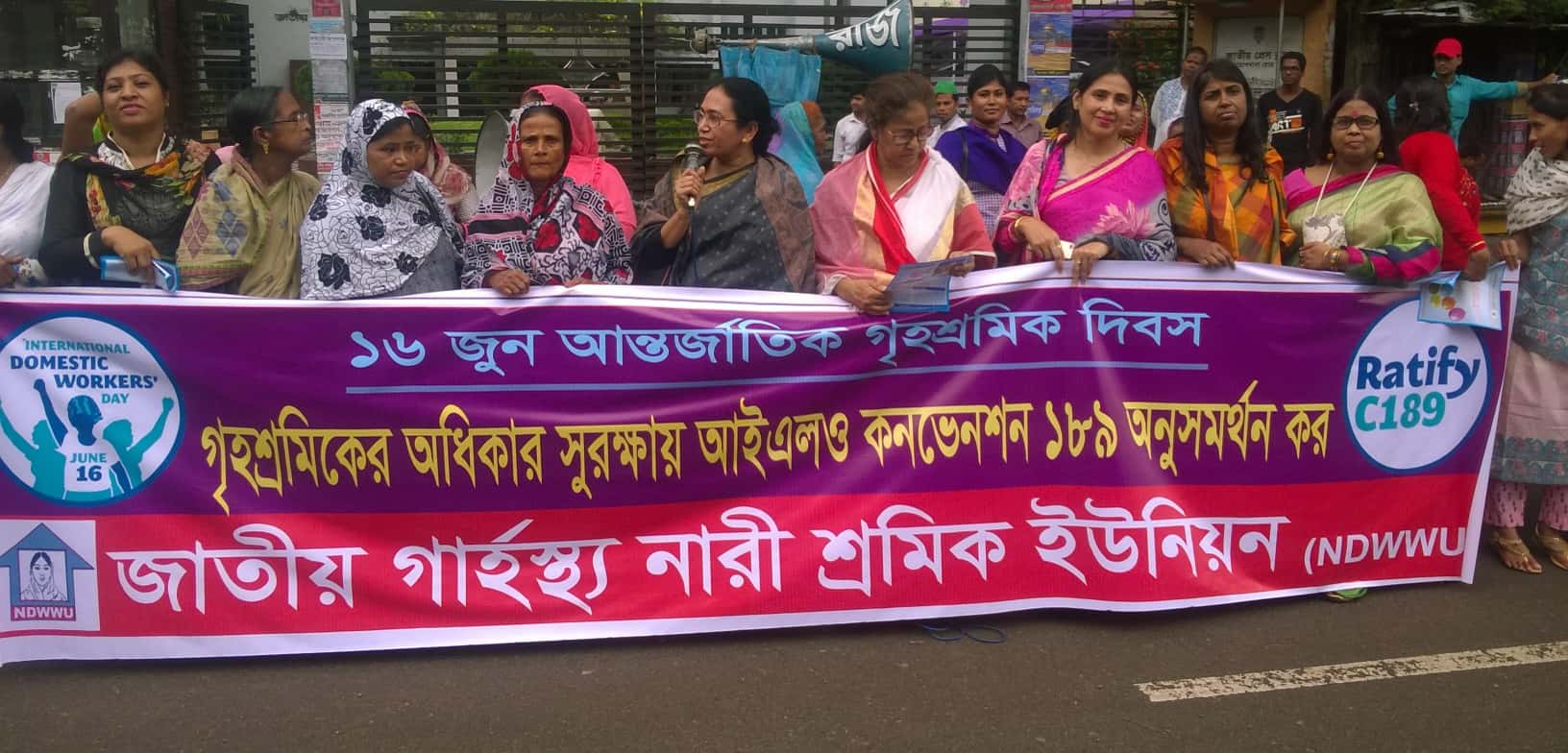Challenges in organizing the informal workforce can be specific to the sector or local context, but many are similar across all sectors and regions of the world.
Information on this web page is adapted from “Organizing in the Informal Economy: A Challenge for Trade Unions," by Christine Bonner and Dave Spooner, International Politics and Society, IPG 2/11.
Political and Conceptual Challenges
The ILC 2002 Resolution Concerning Decent Work and Informal Employment provided some definition for informal employment, and conferred status and validity on informal workers. However, the Resolution is not universally understood or accepted. The diversity and degrees of informal work and the sometimes unclear relationships between employers and employees complicates matters further. Labour laws and some unionists often consider only workers in clear employment relationships, and discount self-employed and own account workers.
Informal workers also may not perceive themselves as workers. This is especially true among women. For example, home-based workers may view their work as an extension of their domestic duties.
The organizations to which informal workers belong may not identify as part of the formal labour movement. Even some organizations that act like trade unions may not want to be associated with the political allegiances of the “formal” trade union movement in their country/sector, or their members may be wary of trade unions.
A Lack of Legal Protection and Clear Negotiating Counterparts
Many informal workers do not have an employer – at least not an obvious one – with whom to negotiate. Also, they are outside the protective labour law framework with no clear markers against which to push for gains. Since collective bargaining is a staple of trade union activities, these factors create perceptual and practical challenges for traditional unions.
Where employers do exist, they may treat informal workers harshly or ignore existing laws. Furthermore, existing regulations often impede, rather than assist, informal workers. This is the case, for example, for street vendors in urban spaces who may face harassment by authorities. Harassment or harsh working conditions can serve as an impetus for collective action – or can create a climate of fear that inhibits organizing, especially where workers can be dismissed and lose their livelihoods but have no recourse.
Poverty and Vulnerability
Many informal workers are poor and must work long hours – sometimes in multiple jobs – to survive, leaving them little time for organizing. Migrant workers may need to remain undetected because they are undocumented, making them particularly vulnerable to exploitation and harassment.
Competition between workers – for example street vendors selling similar products, or taxi drivers in the same area – can reduce the inclination to work collectively. They may come together to take on particular challenges or oppose authorities in a crisis, but this unity of purpose may end when the issue is resolved. For collective action to be ongoing, workers must perceive an ongoing common interest.
Diverse Workplaces
Workplaces may be small, as with some garment workers, or may even be individual households, as is the case for domestic workers. Many informal workers are isolated (e.g. home-based workers and domestic workers), mobile (e.g. street vendors and street waste pickers) or far flung (e.g. farm workers, forest gatherers) workplaces. A single worker may have multiple workplaces and multiple “employers.” These factors all create further complexities for recruiting members, for negotiating better conditions, and for organizational structures and strategies.
Governance and Leadership Issues
In some sectors and in some countries, informal workers have traditionally organized in local associations. However, democratic structures – for example, compliance with formal rules, such as in a constitution, or processes for electing leaders – may not exist (Roever in Chen et al. 2007).
Political or corrupt leadership may be an issue, and these leaders may resist joining with larger trade unions. It is also common for women to be excluded from leadership positions.
Insufficient Resources
Because many informal workers are poor – particularly true for women – they cannot afford dues, especially in times of economic or personal crisis. Organizations of informal workers often lack sufficient resources to cover the cost of staff, space and meetings.
Where unions serve both formal and informal workers, they too may have insufficient financial resources, and informal workers may be viewed as a drain on these.
Progress
Despite these challenges and many others, informal workers are organizing and becoming increasingly visible locally, nationally and internationally – as this video highlights.
